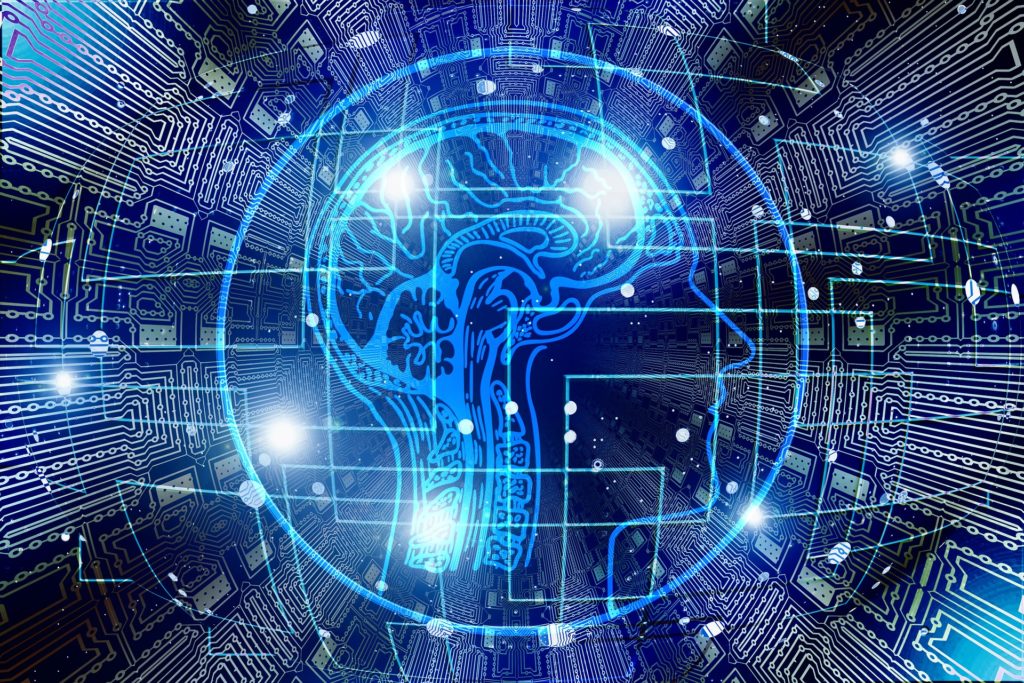Is the scenario of machines taking over our jobs true? Pew Research Center in one of its reports identifies that 72 percent of the respondents turned out to be skeptical and worried over the potential developments that comes with automation. Some of it actually turns out to be true, as automation had already or is in the process of replacing human labor. However, does this worrying and skepticism have a clear ground?
Most of it springs from misunderstanding. Machine learning, AI and its other technology subsets are invented to benefit mankind and be of service in all ways possible. Instead, it is right to say that machine learning augments our tasks to make it easier and not replace of our roles altogether.

Simplifying Tasks is What Machine Learning is all About
Whether we acknowledge it or not, machine learning is touching almost every part of our lives. It is shaping how we work, communicate and travel. From finding out routes in commutes to content recommendations or seeking information from search engines, machine learning is drastically changing how we interact with technology. Essentially, machine learning brings forth a new way of dealing with information to make it conducive for enhancing the quality of our life. For example, consider the daunting task of service appointments for field service management firms. AI is the effective solution for this problem.
Research in this subset of AI is moving ahead with each new developments leasing out newer possibilities. In the near future, we will find machine learning in use everywhere, altering the scope of every field that it touches. To put it simply, machine learning is all about simplifying and making our tasks easier. Here are few ways by which machine learning will make our tasks easier.
Automate Customer Support and Enable Marketing Intelligence
Proper customer support stands as the backbone of the marketing and sales strategies employed by any business. Automating customer support saves time and effort as it directly engages with the customers round the clock providing all the relevant information instantly such as answering questions, making recommendations and providing accurate guidelines based on their queries.
Machine learning and AI powered chatbots interact with users automatically and learn from experience to make the process of engagement more human-like as well as provide the right feedback. The bots will constantly learn from each interaction to assess the customer’s requirements, emotions and engagements to better structure their interactions and thus provide a more positive experience.
Besides, machine learning does find a role in making marketing more intelligent. A company can invest in machine learning tools for collecting data and subjecting them to analysis to garner valuable insights and predictions. It substitutes manual effort in marketing analysis with automation, thereby greatly reducing the time and effort required. Besides, the companies can utilize their marketing data to its utmost value to better reachout to their customers.

Improved Brand Engagement for Personalized Customer Experience
Machine learning can help craft personalized experiences for customers that will increase their engagement with brands. Several high-profile brands like Coca Cola, Burberry, Walmart, American Express etc. are using state of the art machine learning and AI tools to help with their product development, improve sales, combat fraud and counterfeit products as well transform shopping experiences in their online as well as brick and mortar stores.
Some ways by which machine learning will alter brand engagement for customers are:
- Delivering Personalized Content – Machine learning tools can churn out valuable insights from customer data to identify their motives, preferences and purchase behavior. Applying these data driven insights can help deliver personalized contextual content across multiple channels like email, SMS or social media, which will lead to better effectiveness of the targeted campaigns and improved conversions.
- Lowering Customer Churn – Machine learning can help in reducing churn by collecting data from customers that are at risk of leaving or switching to another brand. Using these data, the algorithms can maximize customer engagement strategies, identify potential customer with risks of churning and predict the chances of a customer in discontinuing their association with a brand to ensure that the customer’s relationship remain intact with the brand throughout their lifecycle.
- Customized Recommendations – A brand using machine learning tools can leverage customer data to identify purchase patterns, past history and preferences to impact the purchase decisions of their customers. Using this marketers can build more actionable strategies such as delivering customized recommendations, promotional offers, loyalty or reward programs to their customers.
Better Organization and Filtering of Search Engine Results
Internet search from major search engines like Google is becoming prolific with an estimated 3.5 billion searches each day. Results are delivered semantically after careful curation and filtered by powerful machine learning algorithms. This translates to more improved and specific search results giving users the exact information that they inquire. Besides, the algorithms that power these search engines collect and analyze data trails leftover by the users such as their search queries, purchase or viewing history to tailor unique and personalized experiences.
Search engines also use machine learning to recognize patterns that helps detect spam and low quality content to make the web more dynamic and secure. The same algorithms also work towards effectively compiling and targeting advertisements to users based on their search preferences. This works to improve the overall search experience of users altogether by giving them the information that they want along with recommendations of products and services that correspond to their search queries.
More Efficient and Intelligent Transportation Systems
Yet another area in which machine learning will prove its worth is in transportation. Research is catching up fast to create intelligent transportation systems that run using advanced machine learning and AI. Transportation will become autonomous and human effort reduced to a minimum once such systems are fully developed. Autonomous vehicles will become mainstream in a few years from now.
Developments in the field are moving closer to a fully automated vehicle that can function without any human input. In areas like logistics and supply chain, intelligent transportation systems will help optimize their operations across all levels through data driven decisions, which reduces costs, save fuel and ensure timely movement and delivery of goods from one point to the other.
Conclusion
Developments in machine learning are inching it closer to encompass almost every field of human activity. By harnessing data, machine learning augments the processes and operations to simplify how they perform in the real world. It is right to say that, machine learning will make our tasks a whole lot easier without substituting human effort. Instead, this will free us in redirecting our efforts at other crucial areas by letting the machines handle the mundane and repetitive tasks.

Author Bio:
Tony believes in building technology around processes, rather than building processes around technology. At Fingent, he specializes in custom software development, especially in analyzing processes, refining it and then building technology around it. He work with clients on a daily basis to understand and analyze their operational structure, discover (and not invent) key improvement areas and come up with technology solutions to deliver an efficient process.
